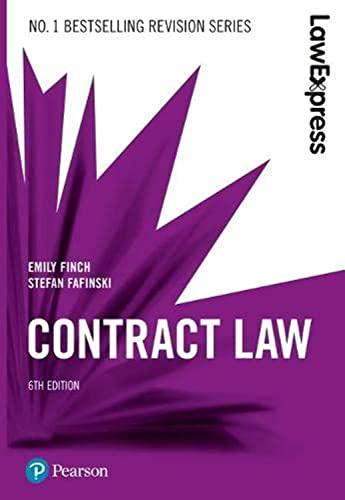Question
27. Assume I get g from the CAPM and the Ke from the ROE (1-p)/(1-ROE (1-p)). I change both numbers in the formula PER =
27. Assume I get g from the CAPM and the Ke from the ROE (1-p)/(1-ROE (1-p)). I change both numbers in the formula PER = (ROE (1+g) - g)/ROE (Ke-g), but the PER I receive is not the same as the PER I receive by dividing the share price by the earnings per share. Is it possible to view the disparity as a market overvaluation or undervaluation of the stock?
28. I was given the task of valuing a pharmaceutical laboratory's stock. Which approach of appraisal is most practical?
29. I need to understand how to properly evaluate a firm, but I can't see the valuation process of a corporation starting with its historical income statements. What are the actions I need to do in a methodical manner? To begin, I believe I should prepare interim financial statements for the coming fiscal years, then compute cash flows, discount them at the present (using a discount factor), and add the terminal value and the difference between the book net worth and the market value of intangibles. I truly need these procedures to be methodical and simple to follow so that I can use them as a reference when appraising a business.
30. What is the difference between a 3 x 1 split and a 3 x 1 split?
31. A court tasked me with valuing a market butcher's (as an economist and auditor). The butcher's did not offer me with any basic income statements or other useful information that I might use in my valuation. It's a modest company with only two employees: the owner and a trainee. They are exempt from some commercial and fiscal informative disclosures under this tax scheme. It is critical, in my opinion, to emphasize that the purpose of the value is not a firm, but rather a business or a job position. Because the premises are rented, the value of its tangible assets is merely the worth of its tools (I believe it is impossible to assess the intangible asset that is the work). Discounting cash flows is obviously not an appropriate strategy in this situation. In fact, I'm not sure whether profession is best suited to the work that the court has assigned to me.
32. How do changes in the price of oil affect a company's value?
33. How can an auditor tell if someone is engaging in creative accounting? I'm referring to things like superfluous provisions or the failure to eliminate value-added intra-group transactions.
34. I recently heard about the Earnings Yield Gap ratio, which is the difference between the inverse of the PER and the TIR on 10-year bonds. It is stated that if this ratio is positive, investing in stock is more profitable. How much faith can an investor have in such a statement?
35. I'm not convinced by the Enron case. How could a respected investment bank advise investors to invest while stock prices were falling?
36. Is the following statement by an accounting expert correct? "The most accurate way to depict the worth of a company's shares is to use the quantity of shareholder's equity on its balance sheet as a valuation criterion. It is a valid argument to say that the value of a company's shares equals its book value."
37. Is it possible to compare goodwill to brand value?
38. Is it possible to state that the value of a stock is intangible?
39. Is the debt and share weighting done with book values of debt and shareholder's equity or market values when computing the WACC?
40. The market risk premium is the annual difference between the stock market's historical return and the risk-free rate. Why has it been negative for a number of years?
41. Is it legal to utilize the "value of the real net assets" in valuing a company's shares, which, according to the Institute of Accounting and Auditing (ICAC), represents the "book value of shareholder's equity, rectified by increases or decreases in value that could be proved, in the case of the company's goods, rights, and liabilities at the reference date"?
42. Is it correct to argue that the value of the shares is the "value of the results' capitalization," which, according to the Institute of Accounting and Auditing (ICAC), is "the total of the expected future results of the company during a certain period, discounted at the time of valuation?"
43. Is it true that a firm develops value for its shareholders over the course of a year if it pays dividends or if the share price rises?
The ratio of net income to shareholders' equity is known as the ROE (Return on Equity).
The term "ROE" stands for "return on equity." As a result, is the return on equity (ROE) a valid metric for determining the value of a company's stock?
Step by Step Solution
There are 3 Steps involved in it
Step: 1

Get Instant Access to Expert-Tailored Solutions
See step-by-step solutions with expert insights and AI powered tools for academic success
Step: 2

Step: 3

Ace Your Homework with AI
Get the answers you need in no time with our AI-driven, step-by-step assistance
Get Started


